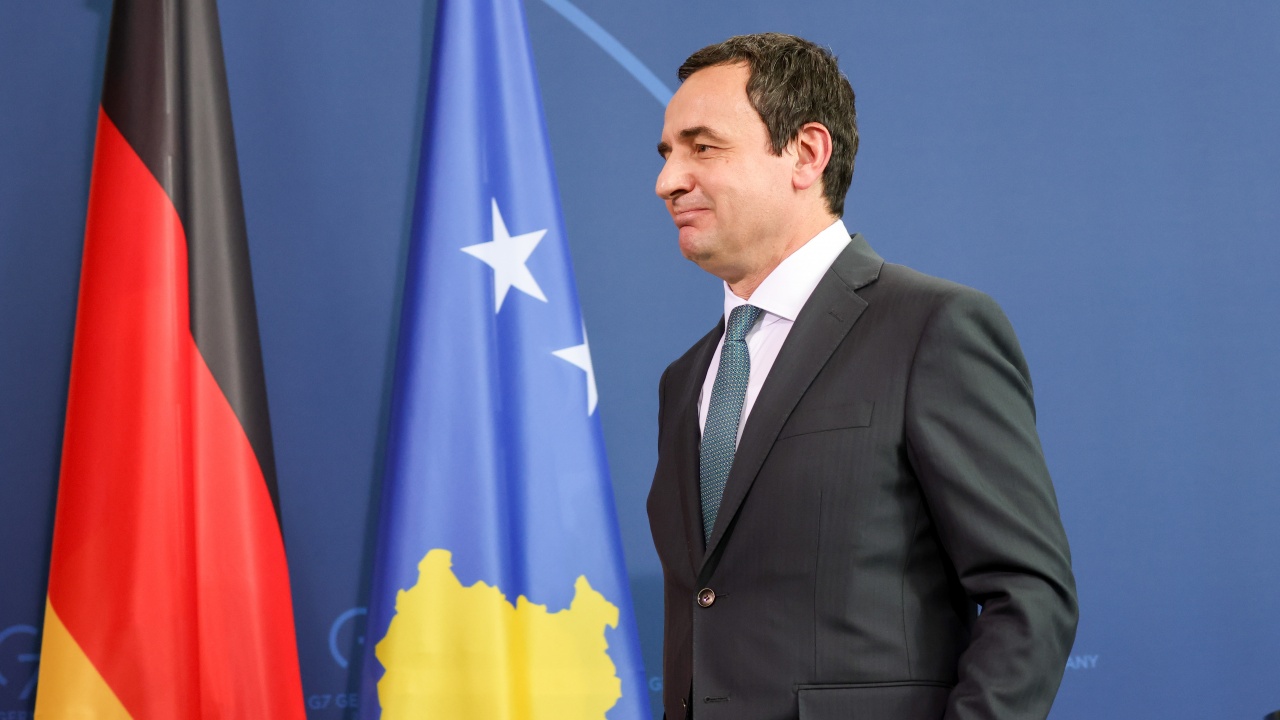Amid the situation in northern Kosovo, where Kosovo Serbs are protesting for another day in front of the buildings of municipalities in Zvecan, Zubin Potok and Leposavić, tensions have arisen between Kosovo Prime Minister Albin Kurti and the opposition in Kosovo.
Opposition leader Ramush Haradinaj of the Alliance for the Future of Kosovo demanded Kurti's resignation, KosovaPress reported, citing Haradinaj's Facebook post.
According to Haradinaj, in less than three years in power, Kosovo Prime Minister Kurti and President Vjosa Osmani have reversed Kosovo's successes and set the country back ten years. Haradinaj added that Kosovo's exclusion from Defender Europe 2023 is a "national security alarm" for Kosovo and stressed that "you have to be very shortsighted to become an enemy with the whole democratic world at such a delicate time".
The opposition Democratic Party of Kosovo (PDK) has expressed concern over recent developments in northern Kosovo, which have put the country in a dangerous confrontation with its allies, especially the United States. The PDK asked the government of the Republic of Kosovo to reconsider and change its approach, BTA reported.
In view of the severity and complexity of the situation, as well as the tensions in the country's northern municipalities, the PDK leadership calls on the President and Prime Minister of Kosovo for an urgent convening of the Security Council.
"The leadership of the Democratic Party of Kosovo expresses deep disappointment at the uncoordinated actions of the government of Kosovo with our country's strategic allies, which have already begun to lead to direct punishments, as Kosovo was excluded from the largest international NATO exercise in the Balkan region "Defender Europe 2023". This exclusion is a concrete sign of Kosovo's deterioration of relations with the US and NATO and is a warning of other consequences if the government of the Republic of Kosovo does not act responsibly," PDK leader Memli Krasniqi said in a post on social media.
Krasniqi expressed concern about the common direction Kosovo has taken under Albin Kurti. He expressed support for the newly elected mayors of Zubin Potok and Zvecan, who are from the ranks of the PDK.
The PDK strongly condemned the violence of "criminal groups" against the military of KFOR, the Kosovo police and media representatives in carrying out their duties.
The opposition party urged Kosovo citizens "to remain calm and not to become part of any manipulation or violent actions that affect order, law and democracy in the country or threaten Kosovo with long-term consequences".
Kosovo's prime minister responded to opposition accusations by saying the government would do everything in its power, but that he himself would not hand over "the democratic Republic (Kosovo) to the fascist militia", as he called "Serbian criminal groups in the north of the country".
Kurti made the remarks today in an interview with CNN, quoted by the agency, adding that he was talking to Kosovo's international partners about the situation in the north of the country.
Kosovo's prime minister: Agreement with Serbia must be implemented quickly and in full
"All international actors recognized the elections that took place on April 23. When the process and results are recognized, mayors must go to municipalities. Who else should be there if not the mayors? We work closely with international actors, especially the US and the EU, which we consider very valuable allies and partners. We'll do our best. But I will not hand over the democratic Republic (Kosovo) to the fascist militia," Kurti told CNN International.
Protests in northern Kosovo have escalated in recent days as Serb protesters clashed with police and NATO peacekeepers KFOR in the municipality of Zvecan. The clashes Monday (May 29th) injured about 30 KFOR soldiers and at least 52 Serbs. Attacks were also carried out on Kosovo police, journalists and their vehicles.
Serbs, who make up a majority in northern Kosovo, do not recognise Kosovo's 2008 declaration of independence and still see Belgrade as their capital. Serbia also does not recognize Kosovo's independence. Serbs refused to take part in local elections in April, and candidates of Albanian origin won elections in four municipalities populated mainly by Serbs, with a turnout of 3.5 percent. Serbs have called on the Kosovo government to remove Albanian mayors from town halls and allow Belgrade-funded local administrations to return to their duties.
resignation
Albin Kurti
